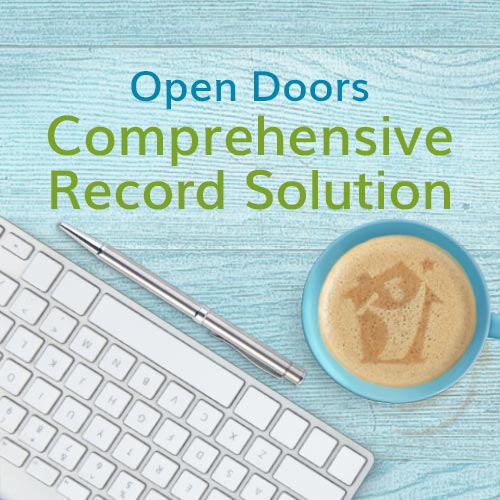Learn How to Earn College Credit with High School Subject Tests
AP® and CLEP® are college-level subject tests taken in high school that help earn college credit and increase chances of college admission. Whether required or optional, understanding these tests are helpful in planning for college-bound students. Since these tests might earn college credit, they can decrease college costs. This guide will explain these tests simply for homeschool parents new to the maze of testing acronyms.
These tests are important. They provide outside documentation of high school accomplishments and demonstrate college readiness. They show understanding of academic subjects. Colleges know there are poorly educated public and private school students. They need outside documentation to be sure the high school transcript matches what a child knows.
Most often, universities see test scores as the primary source of outside documentation. This documentation is usually limited to the standard SAT® or ACT®. The SAT® demonstrates achievement in English and math, while the ACT® includes proof of understanding science concepts.
SAT Subject Tests™ were also previously used for outside documentation. Those tests are no longer available.
There are other forms of outside documentation beyond tests. When a student is not a brilliant test taker, look beyond tests for demonstration of college readiness. Some options include dual enrollment in college classes, great letters of recommendation, a professional and accurate homeschool transcript, thorough course descriptions, work resume, activity list, performance, competition, or interview. These will allow colleges to complete a holistic review of your student, even if subject tests are not available. Your child does not need to become a test-taking machine to earn college admission.
There are two different high school subject tests to choose from. Perhaps you have already heard about the AP® Test or AP® classes. Maybe you have wondered about CLEP® tests after hearing them mentioned at a convention seminar. Let me explain them all, plain and simple in one quick overview, to get you started.
In this article, you will learn the 5 W’s high school subject tests, the 5 rights of subject tests, and how to choose the best study guides for each test. Finally, I'll show you how to choose the subject test that is best for your student.

The 5 W’s of College-Level Subject Tests
Who – College-Bound High School Students
College-bound students, especially those destined for selective schools, should consider taking subject tests. Subject tests can be helpful because they are a common measurement of a student’s understanding of the material.
Many colleges recognize these tests, and some require them for admission. Most colleges require either the SAT® or ACT® test as outside documentation, but some want more in the form of subject tests. Few require AP® Exams. No colleges require CLEP® tests, but some accept them to strengthen the college application.
What – AP® Test, CLEP® Test
AP® Exams are three hours long, most include essays, and they measure a college level of knowledge. AP® Exams assume that a student has taken rigorous AP® classes approved by the College Board. Special AP® classes are not required, however. Anyone can take an AP® Exam, even if they have not taken an AP® course.
Tests may be used to earn college credit. Each AP® Exam may receive college credits from the university the student attends. AP® Exams are scored from 1-5, indicating how qualified the student is to receive college credit. A score of 5 means "extremely well qualified" and is equivalent to a grade of "A". A score of 4 means "very well qualified" and is equivalent to a college "B" grade. A score of 3 means "qualified," and is equivalent to grade of "C". A score of 2 is "possibly qualified" and a 1 is "no recommendation." AP® scores may even be used in the calculation of college GPA, so performing well on tests is critical.
CLEP® exams are computer-based, multiple-choice, offered year-round and can provide college credit. CLEP® exams are college level tests that assume a student has learned naturally through reading, visiting museums, and engaging in hands-on learning. These exams are often a great fit for homeschoolers because they don’t assume everything was learned in a classroom setting.
CLEP® exams may also be used to earn college credit. CLEP® scores range from 20 to 80. The College Board recommends that colleges provide college credit for a score of 50 or higher, but each university will set their own policy on scores receiving college credit, and it often varies depending on the test.
Where – Tests Locations
Public and private high schools usually host AP® Exams. They are offered at schools in May when AP® classes are ending.
CLEP® exams are not commonly given in high schools, because they are typically taken by adults, or students who are not in public high school. They are given at computer test centers at colleges, technical schools, or community colleges.
When – After Studying Each Subject
Most students take subject tests in their sophomore and junior years so their results are ready to present to colleges with their applications in the beginning of senior year. Some students take them earlier. In most cases, tests should be given immediately after study of the subject is completed, so the information is still fresh. In other words, have your child take the chemistry exam right after they finish chemistry class.
Why – Demonstrate Knowledge of Specific Subjects
Subject tests are useful to prove your child has learned a subject thoroughly. In an objective, measurable way, these tests demonstrate achievement in one subject at a time. The SAT® or ACT® can demonstrate a general understanding of reading, writing, and math, but they aren’t specific. It can be helpful to take a subject test in each broad subject category: math, English, history, science, and foreign language. If a college wants two subject tests, have your child take the two tests they will do best at, in the subject they enjoy most.
How – Ensure Passing Scores
Register for each test months in advance so you don’t miss the deadline, but don’t let your student take a test unprepared. Give a sample test at home, to make sure they know the material. Then help them study for the test using study guides at home, filling in any small gaps in the information. Sit your child down to take a full-length, timed sample test, to be sure the student can succeed with the timing and format of the test. Then register for the real test at a testing location.
The bottom line is, never have your child take a test if you believe they will not pass. It can hurt their future testing ability and cause problems with your child’s self-perception. Pre-test at home to make sure your child is comfortable with the material and the test format. Only have them take a real test once you are confident they can pass it. If you aren’t certain your child will earn an acceptable score, don’t have scores sent to colleges until after you have seen the results.

The 5 Rights of High School Subject Tests
Now that you know the basics about subject tests, there are other things to consider. It’s unusual for a child to go to college classes or take a college test without feeling some stress. A bit of stress can be helpful, so children can learn to deal with stressful test situations. On the other hand, you don’t want to build anxiety up in your child needlessly until they develop a phobia of tests. You don’t want to ask them to take a test they aren’t comfortable with.
When I worked as a nurse, we were taught to avoid drug errors by using the “five rights” of medication administration: the right patient, the right drug, the right dose, the right route, and the right time. Using that same strategy, here are the “five rights” of high school subject test success.
1. The Right Test - Decide Which Test ise Best
Choose the best test for your child. If your child is taking advanced classes and wants to attend a selective college, an AP® Exam may be best. Independent learners with advanced knowledge might do best on a CLEP® test. If your child is working at grade level, but not taking honors classes, using the SAT® or ACT® alone might be the most helpful test.
2. The Right College - Know What The College Wants
Subject tests may be required by a college. It can help to know which tests your chosen colleges might require ahead of time, and then try to exceed their expectations for college admission and scholarship success. You can meet or exceed their expectations by choosing tests that make your student look most desirable. Do an online search for the names of your college choices plus “admission requirements.” Remember that college policies change over time, so contact each college directly, before senior year, to find out any additional, updated information.
3. The Right Day – Watch the Calendar
Once you have decided on which tests you want your child to take, keep track of test dates. Each year, add important dates to your calendar or planner: registration deadlines, the date of each test, and dates you will receive results. Include the location and test code you will need on test day (See Homeschool Codes for Tests). Send the test results to each college during senior year, if you haven’t already.
4. The Right Preparation – Study for Tests
There are four steps for test preparation. First, your child has to learn the subject, using curriculum and resources that match their learning style. While the subject is still fresh in their mind, pick up a study guide for the test, to prepare your child for the exact questions they will encounter. Next, you need to identify the information they haven’t learned yet - topics that might be on the test but weren’t covered in the curriculum. Take the time to fill any gaps. Finally, have your child take sample tests repeatedly, to practice timing, speed, filling in bubbles, and writing essays. This will help them earn the maximum scores. If sample test scores aren’t good, consider other tests or options.
Study is important, but there are many things you can do to improve your child’s test score beyond test preparation. Sleep, nutrition, and hydration are remarkably important! A few weeks in advance of each test, slide your child’s sleep schedule back so they will be ready to work the morning of the test. On test day, make sure they have a good breakfast. They should also bring a snack and water for breaks. Be sure to check the test location in advance, so you know exactly where it is and can ensure your child arrives rested and unhurried. Don’t forget to bring ID for the test, because they are careful to prevent cheating.
5. The Right Resources – Find Information for Each Test
Choosing a study guide and resources can be a challenge. Read online reviews first, because study guides change frequently. The resources in the next section will help you decide on the right test, check out the format, and locate independent study guides you can use at home.

Recommended Study Guides
AP® Tests
- Research AP® Subject Tests: CollegeBoard.org - AP® Student Home
- Take Sample AP® Subject Tests: Practice Questions on CollegeBoard.org
- Choose Study Guides: Princeton Review AP U.S. History Premium Prep, 2025
CLEP® Exams
- Research CLEP® Exams: Collegeboard.org CLEP Basics
- Take Sample CLEP® Exams: CLEP® Official Study Guide by The College Board
- Choose Study Guides for CLEP® Exams: I prefer CLEP® Study Guides by REA
If you need additional help, look to the test prep companies specifically geared to the test you need, such as Kaplan and The Princeton Review. You can also hire a tutor. While a general tutor may be helpful for general subjects and test taking strategies, specific tests may require targeted preparation. Look for tutors and classes with specific expertise.

How to Choose the Best Subject Test
- Confidence that your child will have every test that might be required
- Reduce cost of college by earning college credit for work done in high school
- Success with college studies because AP® study mimics college work
- Earn a college degree by taking many exams that are accredited by a college
- Reduce the cost of college by taking a few exams for college credit
- Validate learning in specific subjects, so colleges know the sum of your child’s knowledge

Grab My Free White Paper on College-Level Subject Tests
Recommended Resources

In this book, you will learn how college admission has changed and what colleges now look for in prospective students, little known insights into the mindset of college admissions officials and how you can use them to benefit your child, and the core elements of a comprehensive homeschool record that will amaze and impress colleges. You will be relieved at how achievable it is to create beautiful records and how they can give you a real advantage in the college admissions game.

You CAN craft high school transcripts and records that gain choice college admission and win BIG scholarships. Lee Binz, The HomeScholar, has helped thousands of parents create outstanding homeschool transcripts and records. Her proven system will teach you how to present your child to colleges in the best possible light. You'll learn how to build a winning homeschool transcript, regardless of your homeschool methods or style, how to create credible grades and credits, even if you don't give tests, and how to provide the exact records colleges are looking for.

 Login
Login



